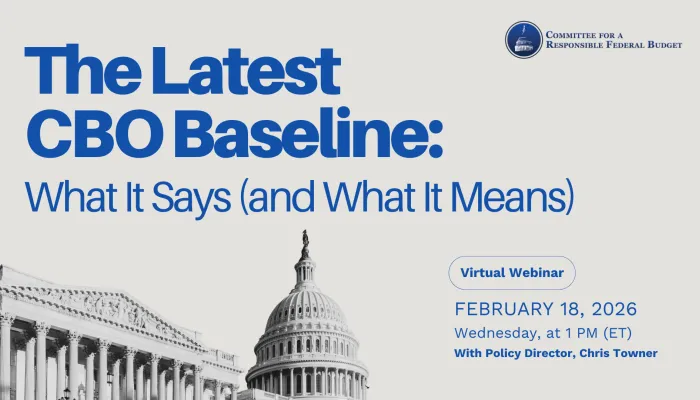Interest, Social Security, and Health Responsible for Nearly 90% of Spending Growth
In the latest Congressional Budget Office (CBO) baseline, nominal spending is projected to grow from $6.8 trillion in Fiscal Year (FY) 2024 to $10.3 trillion in 2034. About 87 percent of this increase is due to three parts of the federal budget: Social Security, federal health care programs, and interest payments on the debt.
As we wrote in June, total government spending has grown both in nominal terms and as a share of the economy since before the COVID-19 pandemic. But while nominal spending typically grows over time, the vast majority of it comes from just these three areas.
The largest spending program – Social Security – will see spending grow from $1.5 trillion this year to $2.5 trillion by 2034, largely due to more eligible retirees beginning to collect benefits. Federal healthcare programs – consisting largely of Medicare, Medicaid, Affordable Care Act subsidies, and the Children’s Health Insurance Program – will grow from$1.6 trillion in FY 2024 to $2.8 trillion by 2034. Health spending will grow as a result of more Medicare and Medicaid beneficiaries as well as the growing cost of health care over the next decade.
The fastest growing part of the budget – net interest costs – will nearly double from $892 billion this year to $1.7 trillion by 2034. This will happen due to older debt rolling over into higher interest rates, as well as new debt – totaling more than $20 trillion over a decade – adding to the interest burden.

Of the projected increase, health care makes up 35 percent ($1.2 trillion), Social Security will make up 29 percent ($1.0 trillion), and interest will make up 23 percent ($818 billion). The remaining 13 percent is split between defense and nondefense discretionary spending, while all other mandatory programs combined – including Supplemental Nutrition Assistance Program benefits, outlays for refundable tax credits, and other safety-net programs – will actually shrink in nominal dollars between 2024 and 2034.
Within the next three years, the national debt will exceed its record ever as a share of the economy due to this rising spending as well as stagnant revenue growth. Policymakers should make the necessary changes to stem the growth of the debt and put it on a downward sustainable path.


